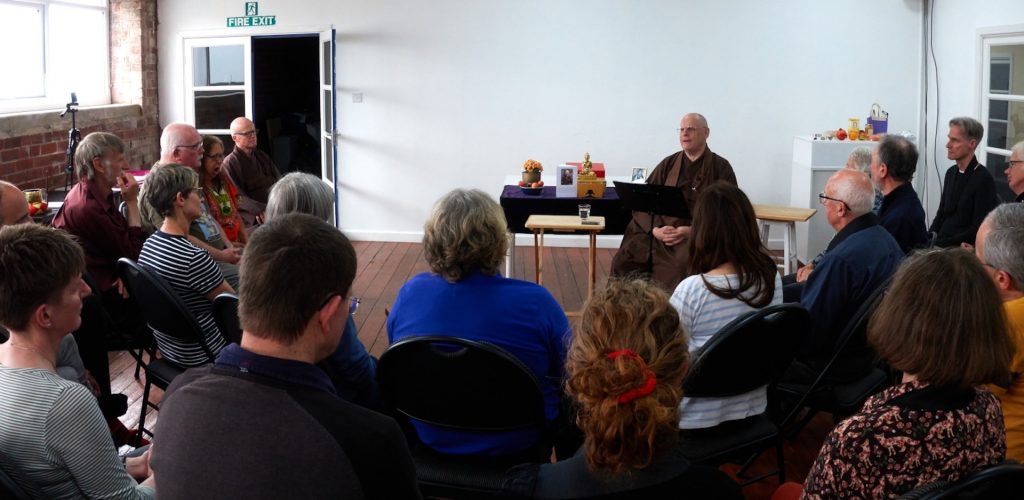History
The historical Buddha, Shakyamuni, lived in Northern India around 2,500 years ago. He was a human being who possessed the same spiritual potential that is within us all. He realised enlightenment and spent his life helping others find what he had found.
The Four Noble Truths
Enlightenment is the direct experience of one’s true nature and the nature of all existence. Shakyamuni Buddha taught that our misunderstandings about how things are, can obscure that direct experience of Truth. To help clarify ‘right understanding’ and point to ‘The Way’ he taught the ‘Four Noble Truths’.
- Suffering/dis-ease/unsatisfactoriness is part of the ‘human condition’ of life as it is typically lived. This is a Truth that is seen more clearly when we sit still in meditation, not participating in the occupations, pastimes and distractions that can obscure it.
- We are impermanent, continually changing, and so is everything that surrounds us. So when we try to hold onto these changing things, as they were, we are frustrated, we suffer.
- There is a way out of this pattern of futile clinging and consequent suffering, instead experiencing acceptance of change and our original enlightened nature.
- Buddhist Training is ‘The Way’ to move from suffering to enlightenment; training and enlightenment are one. This way to transcend suffering was described by Shakyamuni Buddha in ‘the Eightfold Path’.

The Eightfold Path
A helpful article that explores a Zen understanding of ‘the Eightfold Path’ is available here. It was written by R.M. Daizui MacPhillamy, the second Head of the Order of Buddhist Contemplatives (OBC).
The eight aspects are:
- Right Understanding
- Right Thought
- Right Speech
- Right Action
- Right Livelihood
- Right Effort
- Right Mindfulness
- Right Meditation
‘The spiritual life in Zen is realizing Buddha Nature in the present moment.’
From ‘Sitting Buddha’ by R.M. Daishin Morgan

